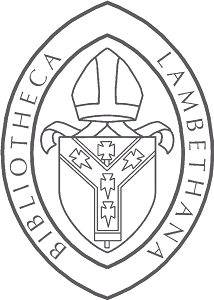“We have three problems: poverty, poverty and poverty.” So said a Councillor from the North-East to ACUPA. Archbishop Robert Runcie set up the Commission in 1983, and tasked it with examining the needs of the Church’s life and mission in inner city areas. ACUPA published its recommendations two years later, generating considerable political controversy, and setting in motion numerous initiatives whose impact continues to this day.
The commission was established in July 1983, following the widespread rioting that had overtaken Brixton and parts of Birmingham, Leeds, Manchester and Liverpool in 1981. Chaired by Sir Richard O’Brien, ACUPA’s 18-strong committee was predominantly lay and professional, with just 7 clergy representatives. ACUPA spent two years conducting extensive research, visiting 32 cities and 9 London boroughs, commissioning a Gallup poll of 400 clergy and receiving 283 written submissions of evidence from a range of charities and statutory bodies with the following terms of reference:
“To examine the strengths, insights, problems and needs of the Church’s life and mission in Urban Priority Areas [an Electoral Ward or Parish with high levels of deprivation] and, as a result, to reflect on the challenge which God may be making to Church and Nation: and to make recommendations to appropriate bodies”
According to other commission members, O’Brien insisted that every claim in the report should be backed by evidence so that it would be impossible to criticise it on a factual level.

The 350-page report, Faith in the City: A Call for Action by Church and Nation, was published in December 1985.The introduction conveyed the profound shock that many committee members had experienced on delving into the issues surrounding Urban Priority Areas (UPAs):
“We have to report that we have been deeply disturbed by what we have seen and heard. We have been confronted with the human consequences of unemployment […], decayed housing, sub-standard educational and medical provision, and social disintegration”
Equally critical of both Church and State, the report claimed that with respect to UPAs “no adequate response is being made by Government, nation or Church. There is barely even widespread public discussion”. Of the report’s 61 recommendations, 38 were directed specifically at the Church, with the remaining 23 at the Government and nation. Of the latter, the general emphasis lay in using taxpayers’ money to alleviate inequality by increasing various benefits, spending more on job creation, regeneration and expanding the provision of council housing. As for the Church, it was recognised that attention needed to be directed at clergy staffing levels, training for ordained and lay leaders and acquiring flexibility in liturgical needs, styles of work with children and young people and use of buildings. The flagship recommendation, however, was the establishment of the Church Urban Fund, an ambitious plan to raise £18 million to be spent on inner city projects over a period of 20 years.
Its publication caused an immediate media storm, as various members of Margaret Thatcher’s government rushed to condemn its contents as “pure Marxist theology” and proof that the Church was governed by a “load of Communist clerics”. The Daily Mail labelled it “a flawed gospel […] intellectually beneath contempt” whilst Thatcher complained that it contained nothing “about self-help or doing anything for yourself”. Others, though, were more admiring. Home Secretary Douglas Hurd was struck by the conclusions on crime whilst Defence Secretary Michael Heseltine told Archbishop Runcie: “Your bishops have it wrong. Conditions in the inner cities are much worse than they say”.
The publicity generated huge interest and within a few months over 17,000 copies of Faith in the City had been sold, along with 66,000 copies of an abridged version. The impact of the report and the resultant discussion was profound and far-reaching. Speaking in 2005, the Dean of Norwich Graham Smith remarked:
“Faith in the City began a movement which was partly political (with a small p), partly theological and partly spiritual. In all three senses, it was a beacon of hope to a lot of people […]. [It] began a discussion across the nation and a movement within the Church. It showed that our common concerns could be harnessed in the common good”
Though Archbishop Runcie had no direct involvement in its writing, Faith in the City remains one of the greatest achievements of his primacy. The Church Urban Fund, launched in 1987, with an appeal to donate read from every pulpit in the land, is still going strong almost 30 years later, and to date has distributed over £70 million in funding.
The records of ACUPA are now available to researchers as of the beginning of 2016. They are held at the Church of England Record Centre and will be accessible via the online catalogue, searchable by entering ACUPA* into the OrderNo box. These records are complemented by records relating to ACUPA within the Main Series of Robert Runcie’s papers for 1985, held at Lambeth Palace Library, which are now also available to researchers as of the beginning of 2016.
